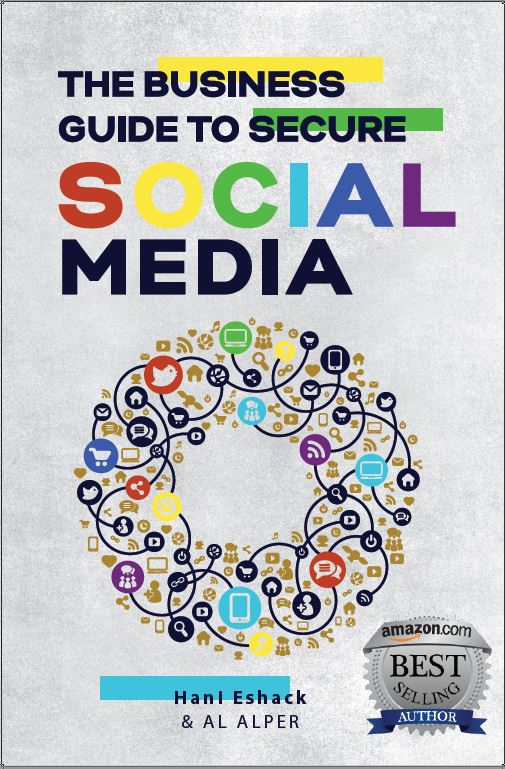
In the ever-evolving landscape of digital marketing, search engine optimization (SEO) has remained a cornerstone, guiding how content is crafted and presented online to rank well in search engine results pages (SERPs). Traditionally, SEO strategies have revolved around understanding search engine algorithms, focusing on keywords, meta tags, backlinks, and content relevance to achieve visibility.
However, the advent of sophisticated artificial intelligence (AI) technologies, particularly generative models like ChatGPT, is poised to disrupt this well-established ecosystem. ChatGPT, with its ability to understand and generate human-like text, presents an intriguing possibility: What if people start turning to AI instead of traditional search engines for information?
This shift raises critical questions about the future of SEO. Will traditional SEO practices become obsolete? How will content creators ensure visibility in an AI-dominated landscape? This blog post delves into these questions, exploring the potential futures of SEO in a world where ChatGPT or similar technologies could redefine what it means to "search" for information online.
Staff members using devices within a single location offer cybercriminals a narrower target. With multiple locations, everyone’s personal devices and porous networks accessing your company’s internal infrastructure can spell disaster.
The Evolution of AI in Search Technologies
The integration of artificial intelligence into search technologies isn't a new phenomenon. For years, search engines have employed AI to refine algorithms, enhance query understanding, and improve the relevancy of search results. Google's introduction of the RankBrain algorithm in 2015 marked a significant milestone, as it was one of the first major uses of machine learning within the search engine's ranking process. Since then, AI's role in search has only expanded, touching every aspect from spam detection to content relevance and personalization.
However, the emergence of generative AI models like ChatGPT represents a quantum leap in the AI-search paradigm. Unlike traditional search engines, which index and retrieve information, ChatGPT can generate informative, coherent, and contextually relevant responses in a conversational manner. This capability doesn't just enhance the search experience; it redefines it, offering a more interactive and engaging way to find information.
ChatGPT: A New Frontier in Search
ChatGPT, developed by OpenAI, is built on a foundation of vast amounts of text data, enabling it to understand and respond to queries with a depth and nuance previously unattainable by straightforward search algorithms. This isn't about replacing keywords with more keywords but about understanding the intent behind a query and generating a tailored response that can directly answer a user's question or provide insights on a topic without requiring the user to sift through multiple sources.
For instance, instead of presenting a user with a list of links in response to a query about the best SEO practices in 2024, ChatGPT can synthesize the most current and relevant information into a concise overview, drawing from the latest articles, research papers, and expert opinions. This not only saves time but also makes the information more accessible to users, regardless of their expertise level.
Implications for Traditional Search
The capabilities of ChatGPT and similar AI models could significantly impact how people interact with information online. Users might begin to favor AI-driven platforms for certain types of queries, particularly those seeking explanations, tutorials, and personalized advice. This shift could reduce reliance on traditional search engines, especially for content that benefits from a nuanced understanding or a summarized overview.
However, it's unlikely that AI will completely replace traditional search engines in the near future. Search engines are incredibly efficient at indexing the vast expanse of the internet, offering up-to-date information across a broad range of topics and formats. Instead, the future might see a hybrid model where AI enhances search engines, providing users with the option to engage in a more conversational query process or access AI-generated summaries alongside traditional search results.
Navigating the New Landscape: How Search Engines Could Evolve with ChatGPT
As artificial intelligence becomes increasingly integrated into our digital lives, it's crucial to envision how traditional search engines might adapt to the rise of AI-driven platforms like ChatGPT. Here, we explore three potential scenarios that illustrate the diverse ways in which the search engine landscape could transform.
Scenario 1: ChatGPT as a Complement to Traditional Search Engines
In this scenario, search engines and AI-driven platforms like ChatGPT exist in harmony, each serving distinct but complementary roles. Traditional search engines continue to excel at indexing the web, providing users with a broad array of resources, from news articles and research papers to forum discussions and product listings. Meanwhile, ChatGPT thrives in areas requiring deep understanding, nuanced explanations, and personalized interaction.
Imagine a hybrid search platform where initial queries are processed through a traditional search engine, offering users a familiar list of links. Alongside these results, an AI-driven module generates a concise summary or answers specific questions related to the query. This blend leverages the strengths of both approaches, providing users with both breadth and depth in their search experience.
Scenario 2: ChatGPT as the Primary Information Source, Diminishing the Role of Traditional Search
In a more radical shift, AI-driven platforms could become the go-to source for information, significantly reducing the average user's reliance on traditional search engines. As AI models continue to improve in accuracy, reliability, and conversational capability, users might prefer the direct, concise answers provided by AI over sifting through pages of search results.
This scenario would require AI platforms to continuously update their knowledge bases with the latest information, a significant challenge given the dynamic nature of the web. However, advancements in real-time learning and information verification could enable AI to meet this challenge, leading to a future where ChatGPT-like technologies are the primary gateways to online information.
Scenario 3: Integration of ChatGPT-like Technologies into Existing Search Engines
A likely evolution of the current landscape is the integration of ChatGPT-like AI directly into existing search engines. Instead of operating as separate entities, AI becomes a core component of the search engine itself, transforming the way results are generated and presented.
In this scenario, search queries could be answered with a mix of AI-generated content and traditional search results. For example, a query about fixing a specific software issue could yield a step-by-step AI-generated guide, supplemented by links to relevant forum discussions and official documentation. This integrated approach could offer the best of both worlds, combining the efficiency and comprehensiveness of traditional search with the personalization and depth of AI.
Implications for SEO
Each of these scenarios presents unique challenges and opportunities for SEO. The integration of AI into search could shift the focus from optimizing for keywords and links to creating content that genuinely addresses user intent and questions. Content quality, relevance, and the ability to provide clear, concise answers could become even more critical, as AI-driven platforms prioritize these factors in generating responses.
As we navigate these potential futures, SEO professionals must stay adaptable, continuously learning and evolving their strategies to align with how people access information online. The next sections will delve deeper into the implications for SEO and outline strategies for staying ahead in a rapidly changing digital landscape.
Adapting SEO for an AI-Driven Search Landscape
The potential dominance of ChatGPT and similar AI technologies in the search ecosystem poses a significant shift in how SEO professionals approach content optimization. This section explores how SEO might evolve in response to these changes, focusing on content creation, the role of keywords, backlinks, and new strategies for ensuring visibility.
Changes in Content Creation and Optimization
As AI becomes more adept at understanding and generating human-like responses, the emphasis in content creation shifts towards quality and relevance. In an AI-driven search environment, content must not only be optimized for keywords but also structured in a way that directly addresses user queries. This means creating content that is informative, well-researched, and answers specific questions comprehensively.
For SEO professionals, this could involve a deeper analysis of user intent, leveraging AI tools to understand the types of questions users are asking, and tailoring content to meet these needs. The goal is to create resources that AI would recognize as authoritative and directly relevant, thereby increasing the chances of being referenced in AI-generated responses.
The Evolving Role of Keywords and Backlinks
While keywords have long been a cornerstone of SEO, their importance may diminish in an AI-driven search landscape. Instead of focusing on keyword density, SEO strategies would need to prioritize semantic search principles, optimizing for topics and concepts rather than specific keyword phrases. This approach aligns with AI's ability to understand context and nuance, enabling it to match content with a broader range of queries.
Similarly, the role of backlinks may evolve. While backlinks have traditionally signaled a page's authority, AI's ability to assess content quality and relevance directly could lessen their impact. However, backlinks from reputable sources might still play a role in helping AI models determine the trustworthiness and authority of content.
New Strategies for Visibility in an AI-Driven Search Landscape
To maintain visibility in an AI-dominated search environment, SEO professionals might need to adopt new strategies that go beyond traditional optimization techniques. These could include:
- Engaging Directly with AI Platforms: Collaborating with AI developers to ensure content is accurately represented and easily accessible by AI models.
- Leveraging Structured Data: Using schema markup to help AI understand the context and content of web pages, making it easier for AI to include this information in its responses.
- Creating AI-Friendly Content: Developing content that is easy for AI to parse and understand, such as clear headings, structured summaries, and question-answer formats.
- Monitoring AI Trends: Staying updated with the latest developments in AI technology to anticipate changes in how information is processed and presented.
Opportunities and Challenges for SEO
The rise of AI in search presents both opportunities and challenges for SEO professionals. On one hand, it opens up new avenues for creating more personalized and engaging content, potentially leading to better user experiences and higher engagement rates. On the other hand, adapting to an AI-driven landscape requires a shift in mindset and approach, with a greater emphasis on understanding AI technologies and leveraging them to enhance content visibility.
The future of SEO in a world where ChatGPT or similar AI technologies dominate the search landscape is fraught with uncertainties but also brimming with possibilities. By focusing on quality, relevance, and the user experience, SEO professionals can navigate these changes and continue to ensure their content reaches its intended audience.
This section has explored the direct implications of an AI-driven search landscape on SEO practices, highlighting the need for adaptability and innovation. Next, we'll discuss specific opportunities and challenges this new landscape presents for marketers, providing insights into how they can thrive in an evolving digital ecosystem.
Opportunities in an AI-Driven Landscape
- Enhanced Content Personalization: AI's ability to understand user intent and preferences at a granular level offers unparalleled opportunities for content personalization. Marketers can utilize AI insights to craft content that resonates more deeply with individual users, potentially increasing conversion rates and user loyalty.
- Improved User Engagement: AI-driven platforms can generate dynamic content in real-time, responding to user queries with informative and engaging answers. This capability allows marketers to create interactive experiences that keep users engaged, making it easier to communicate complex ideas or promote products and services.
- Efficient Content Optimization: With AI's help, identifying the most effective content strategies and SEO practices becomes more straightforward. AI can analyze vast amounts of data to pinpoint what content performs best for certain queries, enabling marketers to optimize their efforts more efficiently.
- Innovative Marketing Channels: ChatGPT and similar technologies could evolve into new marketing channels, offering unique ways to reach and interact with audiences. Whether through AI-driven Q&A sessions, personalized content recommendations, or interactive guides, these platforms represent a frontier for creative marketing strategies.
Challenges in Navigating an AI-Dominant World
- Navigating AI-Generated Content: As AI becomes more prevalent in generating content, distinguishing between human and AI-generated content becomes increasingly challenging. Marketers must ensure their content maintains a human touch, emphasizing authenticity and genuine value to stand out.
- Adapting to Rapid Technological Changes: The pace of AI development means that what's effective today might not be tomorrow. Marketers must remain agile, continuously learning and adapting their strategies to leverage the latest AI capabilities while adhering to ethical standards and best practices.
- Ensuring Data Privacy and Security: Utilizing AI for personalized marketing requires handling vast amounts of user data, raising concerns about privacy and security. Marketers must navigate these issues carefully, ensuring compliance with regulations like GDPR and CCPA, while maintaining user trust.
- Maintaining Authenticity: In an environment saturated with AI-generated content, maintaining a brand's authenticity and voice becomes more challenging but also more crucial. Marketers need to find a balance between leveraging AI's efficiencies and preserving the unique attributes that differentiate their brand.
Strategies for Success
To capitalize on the opportunities and mitigate the challenges, marketers should:
- Invest in AI Literacy: Understanding the capabilities and limitations of AI technologies is crucial for leveraging them effectively. Marketers should invest in training and resources to stay at the forefront of AI developments.
- Focus on Quality and Relevance: In an AI-driven landscape, the quality and relevance of content are paramount. Marketers should prioritize creating valuable, informative, and engaging content that meets users' needs.
- Embrace Ethical AI Use: Ethical considerations should guide the use of AI in marketing. This includes transparently using AI-generated content, safeguarding user data, and ensuring that AI-enhanced marketing practices do not mislead or manipulate users.
- Leverage AI for Insights, Not Just Output: Utilize AI not just for content generation but also for gaining deeper insights into user behavior, preferences, and trends. These insights can inform more strategic and effective marketing decisions.
As we stand on the brink of a new era in digital marketing, the integration of AI technologies like ChatGPT into the search landscape presents both significant opportunities and formidable challenges. By staying informed, adaptable, and committed to ethical practices, marketers can navigate this evolving terrain and harness the power of AI to create more engaging, effective, and personalized marketing strategies.
Future-Proofing SEO and Content Creation in an AI-Dominated World
As we venture into an uncertain yet exciting future where AI technologies like ChatGPT play a pivotal role in shaping the search landscape, SEO professionals and content creators face the challenge of adapting to a rapidly evolving digital ecosystem. The final section of our exploration offers actionable recommendations to help prepare for this future, ensuring that your strategies remain effective and your content continues to reach its intended audience.
Embrace Continuous Learning
The field of AI is advancing at an unprecedented pace, with new developments and capabilities emerging regularly. Staying informed about the latest AI technologies, search engine updates, and content strategies is crucial. Attend webinars, enroll in courses, and participate in industry forums to keep your skills sharp and your knowledge up to date.
Prioritize User Experience
AI's impact on search emphasizes the importance of creating content that genuinely addresses user needs and preferences. Focus on crafting engaging, informative, and accessible content that provides real value. User experience should be at the heart of your SEO and content creation efforts, with a focus on satisfying the intent behind search queries.
Leverage AI Tools Ethically
AI offers powerful tools for content creation, keyword research, and market analysis. Use these tools to enhance your strategies, but always with an ethical approach. Be transparent about the use of AI-generated content and ensure that your use of AI respects user privacy and adheres to regulatory standards.
Foster Adaptability and Innovation
The future belongs to those who can adapt and innovate. Experiment with new content formats, explore AI-driven content personalization, and remain open to redefining your SEO strategies. The ability to pivot and embrace new methodologies will be key to thriving in an AI-driven search environment.
As we conclude our journey through the potential futures of SEO in an AI-dominated landscape, it's clear that while challenges lie ahead, so do immense opportunities. By embracing change, prioritizing user experience, and leveraging AI ethically and effectively, SEO professionals and content creators can navigate this new era with confidence and creativity. The future of SEO may be uncertain, but by preparing now, we can ensure that it is also bright.






